
SMALL BUSINESS HACKATHON WINNER – 2021
Sales Forecasting Module for Toast P.O.S. system
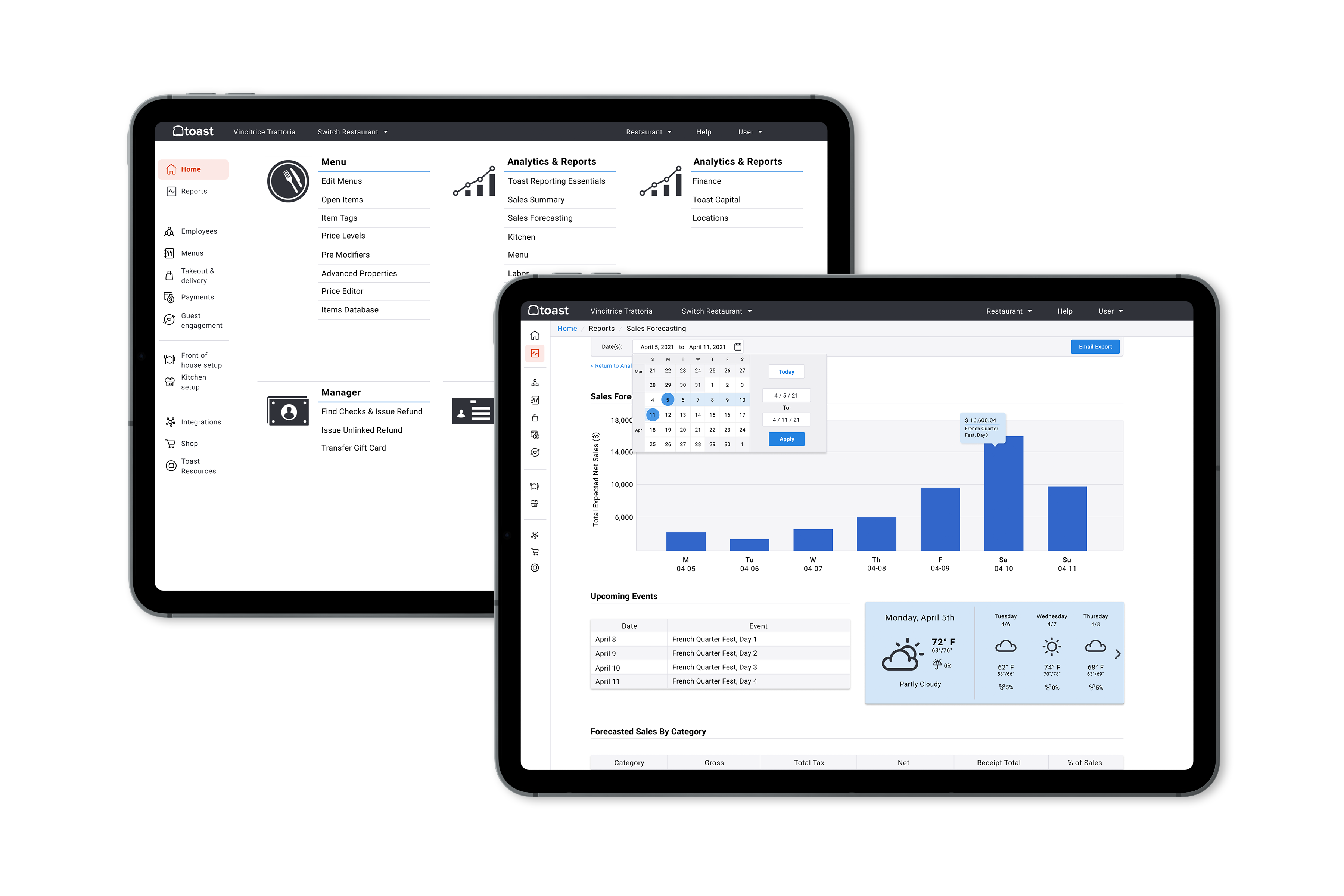
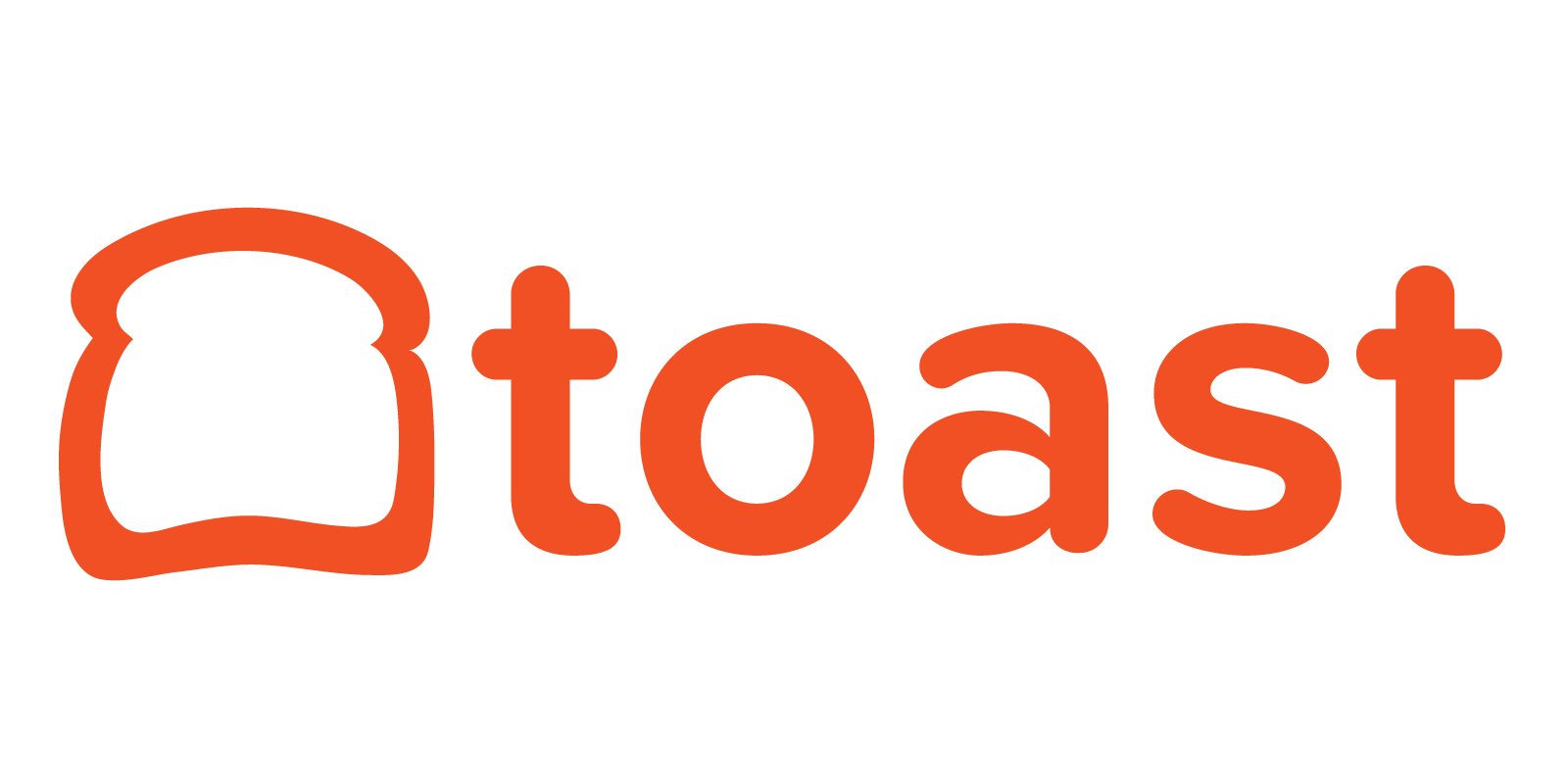
For two and a half days in March '21, I participated in General Assembly's Small Business Hackathon event. The event was aimed at ideating, designing, and deploying solutions for small business' to help recover from effects caused by the COVID-19 pandemic. Together, my team and I developed a sales forecasting module intended to be included in a restaurant point of sale system. For our project, we modeled the new feature using the Toast P.O.S. system.
ROLE
UX Designer
TEAM
Suzanne Mcdonnell – UX Designer
Jamie Magruder – UX Designer
Jennifer Boyles – Data Scientist
Jesse Tao – Data Scientist
Patrick O'Hern – Software Engineer
Scott Solmonson – Software Engineer
John Hazard – Mentor, Data Science
Matthew Johnson – Mentor, UX Design
Scott Kutler – Mentor, Software Engineering
STAKEHOLDERS
Restaurant Manager (conceptual)
Toast P.O.S. Representative (conceptual)
CLIENT
Toast P.O.S.
TASK
Come up with a solution that would help small business restaurant's recover more quickly from the COVID-19 pandemic.
DURATION
2.5 days
TOOLS
Figma, Cardsmith, Google Meet
METHODS
User Interviews, Affinity Mapping, Click Testing, Usability Testing, Mid Fidelity Prototyping, High Fidelity Prototyping
PROBLEM
Colleague Suzanne Mcdonnell spent 6 years of her professional career managing a restaurant located in downtown New Orleans, LA. Her experiences in that role provided us with the starting point for this project.
A common challenge restaurant managers face is accurately predicting demand in upcoming weeks to make informed decisions on staffing and supply orders. Due to the nature of New Orleans being a center for various events, parties, and celebration, it is essential that restaurants stay up to date on which events are approaching to avoid being caught off-guard.
Who remembers what happened this week, last year?
The short answer: No one – at least no one without tedious effort.
Suzanne described her experience meeting weekly for a managerial sync-up and planning session. Typically the time was spent looking at the previous years sales numbers, then painstakingly investigating if any of the numbers seemed to be irregularly high or low.
According to interviews, being caught off-guard by at least one event per year is a reality for most restaurants. When restaurants are not prepared, guest satisfaction and employee morale are negatively affected.
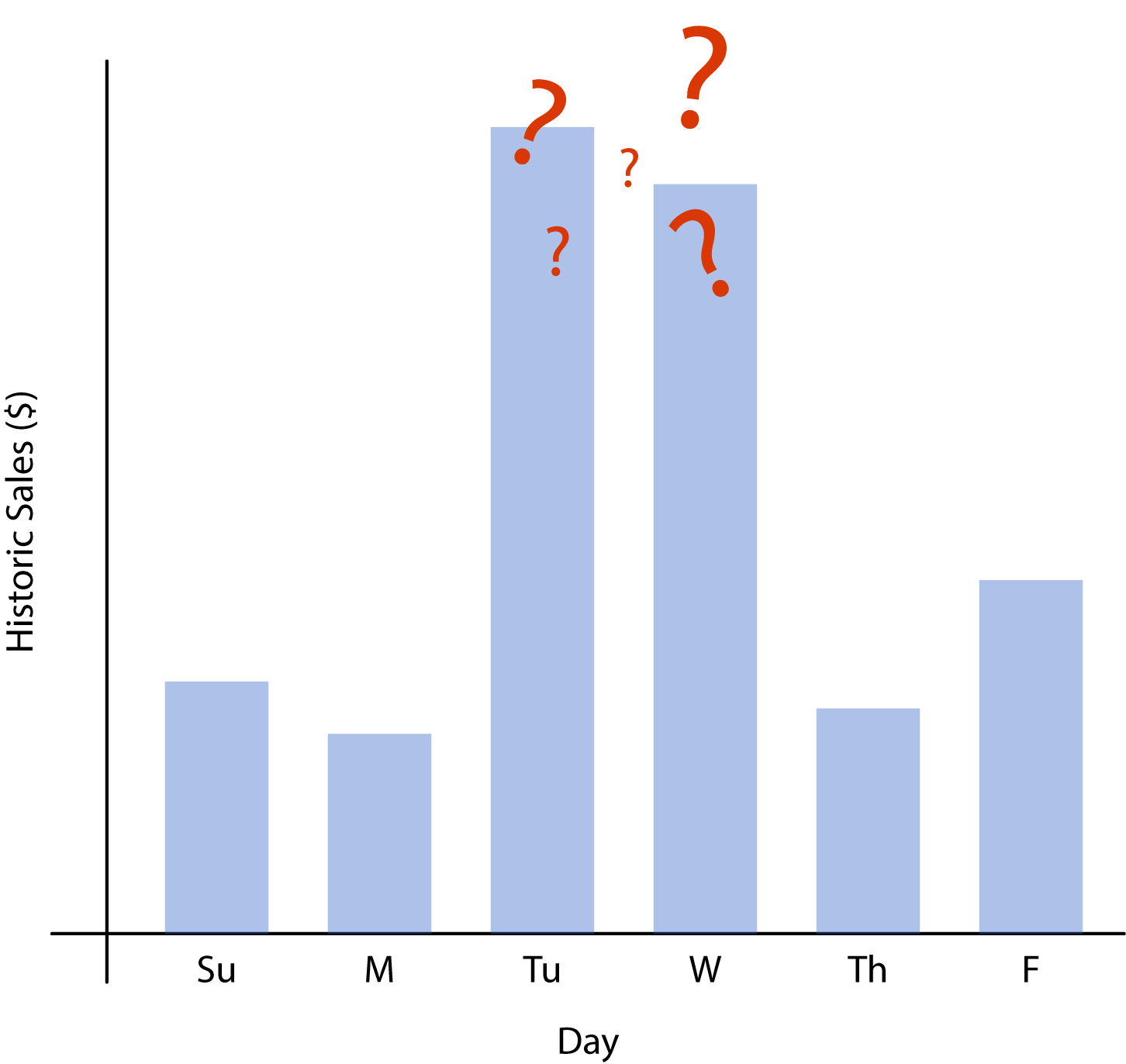
Does anyone remember what happened on Tuesday and Wednesday last year?
Was there an event in town?
Were the Saints playing?
Which convention events occured?
Instead of relying on word of mouth or manual investigation each time planning comes around, why not provide restaurant managers with a way to view upcoming local events, AND see the impact those events might have on sales through the use of a predictive model.
RESEARCH & SYNTHESIS
What do restaurant managers think? Is forecasting and a lack of centralized local event info truly a problem that others face? Would this feature be used in real scenarios? Would it provide helpful information to the planning process?
We set out to answer these questions by interviewing a number of restaurant employees located in the New Orleans area.
We interviewed...
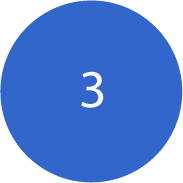
GENERAL MANAGERS
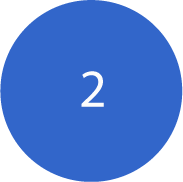
CHEFS / RESTAURANT OWNERS

FORMER OWNER

JAMES BEARD AWARD WINNERS
And here's what we found...
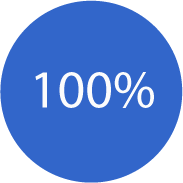
Consider upcoming events and weather when planning
Rely on 'word of mouth' when learning about upcoming events
MOST IMPORTANT FACTORS WHEN PLANNING
- Upcoming Events
- Weather
- Historic Sales
- Inventory

How might we provide consolidated insight into upcoming events, weather, and expected sales so that restaurant managers can save time and better prepare for upcoming weeks using a single source for information?
SCOPE
Our solution includes a sales forecast predictive model that uses two inputs:
- Historic sales data
- Historic and future (+28 days) local event data
To present this information to restaurant managers, we include a dedicated page accessed through through the Toast P.O.S. system, ideally using a quick link from the Toast landing page.
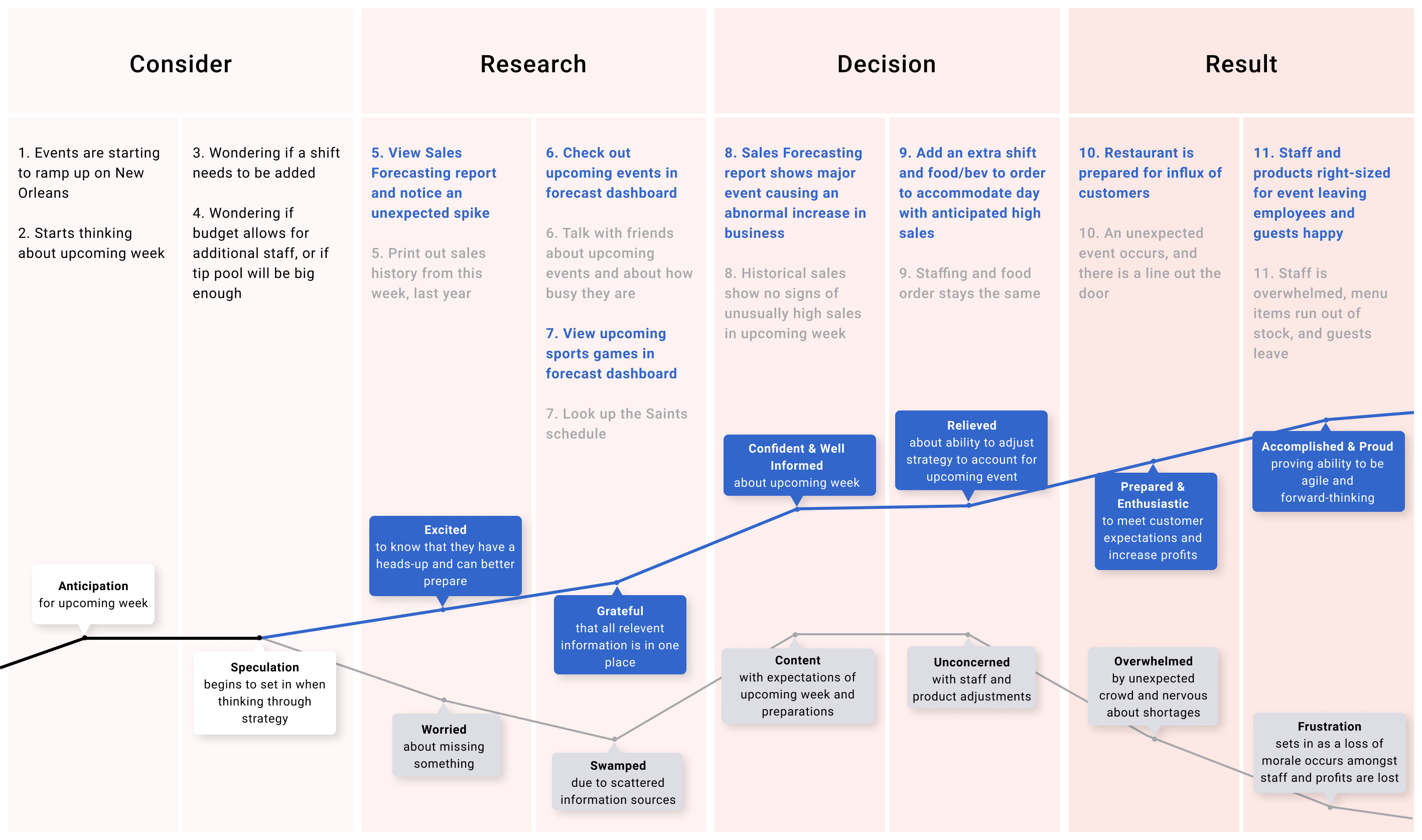
Journey Map demonstrating the emotional rollercoaster of the Multitasking Manager
UI DESIGN
Because restaurants already rely on P.O.S. systems to manage their operations and transactions, the team decided to design a module or feature that would be available through the P.O.S. system suite of functions.
LANDING PAGE
In figma, we modeled the Toast P.O.S. system landing page, and added a link for a Demand Forecasting page. We later changed the name of the new page to Sales Forecasting after testing results showed confusion with the 'Demand Forecasting' label.
We included this landing page to provide context, as this would be the starting point for our multitasking manager if they were to work through the flow of using the sales forecast module to inform decisions.
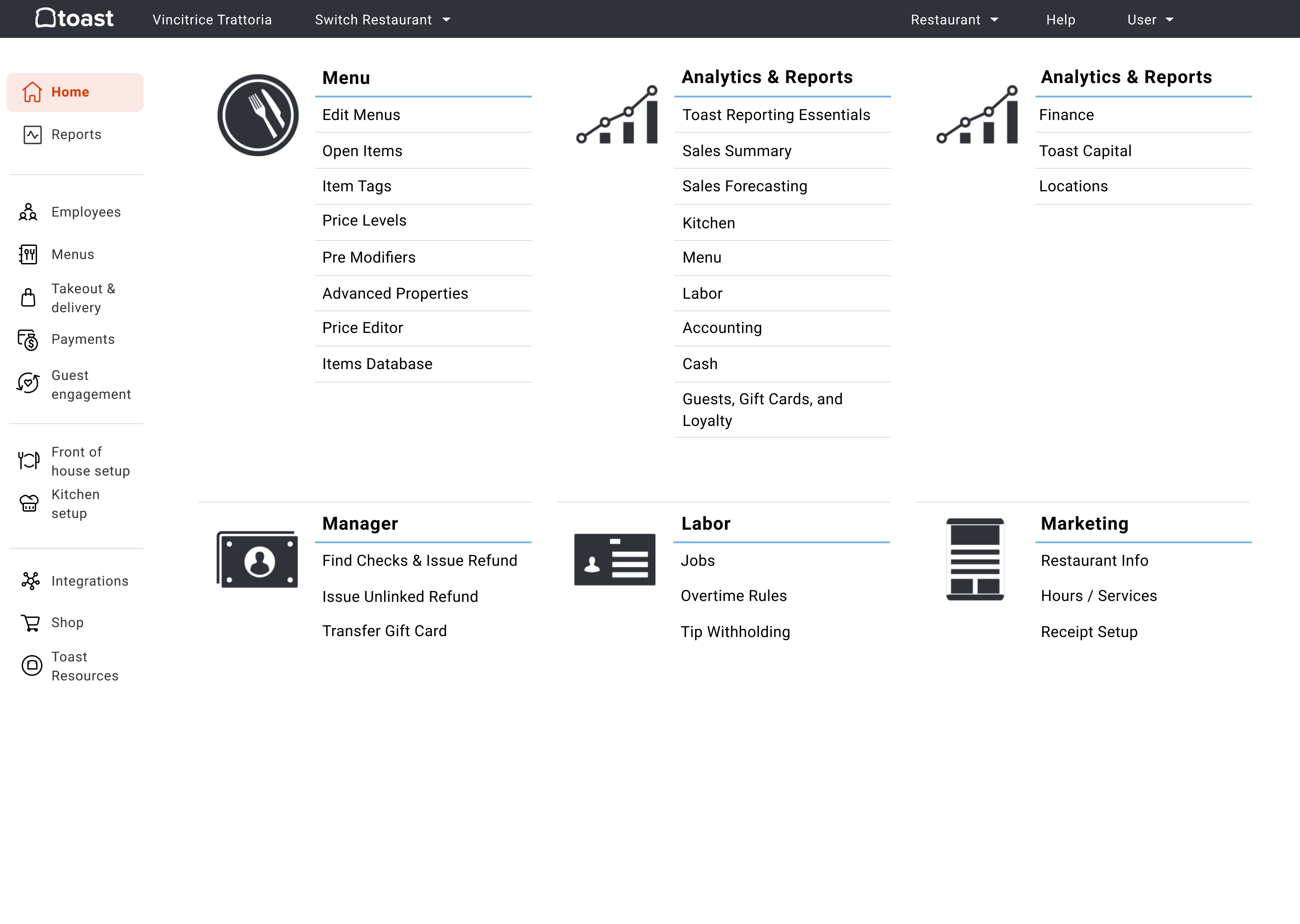
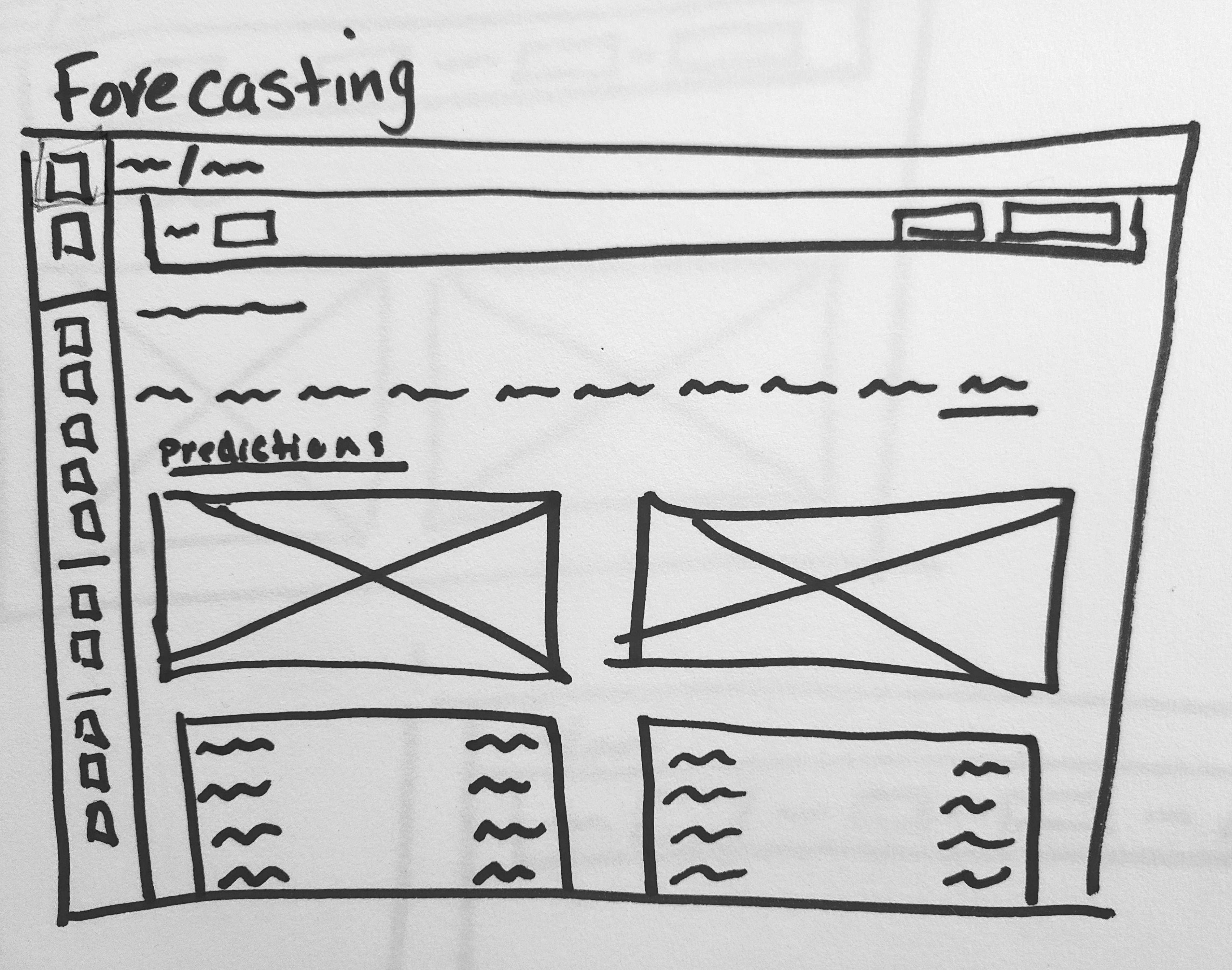
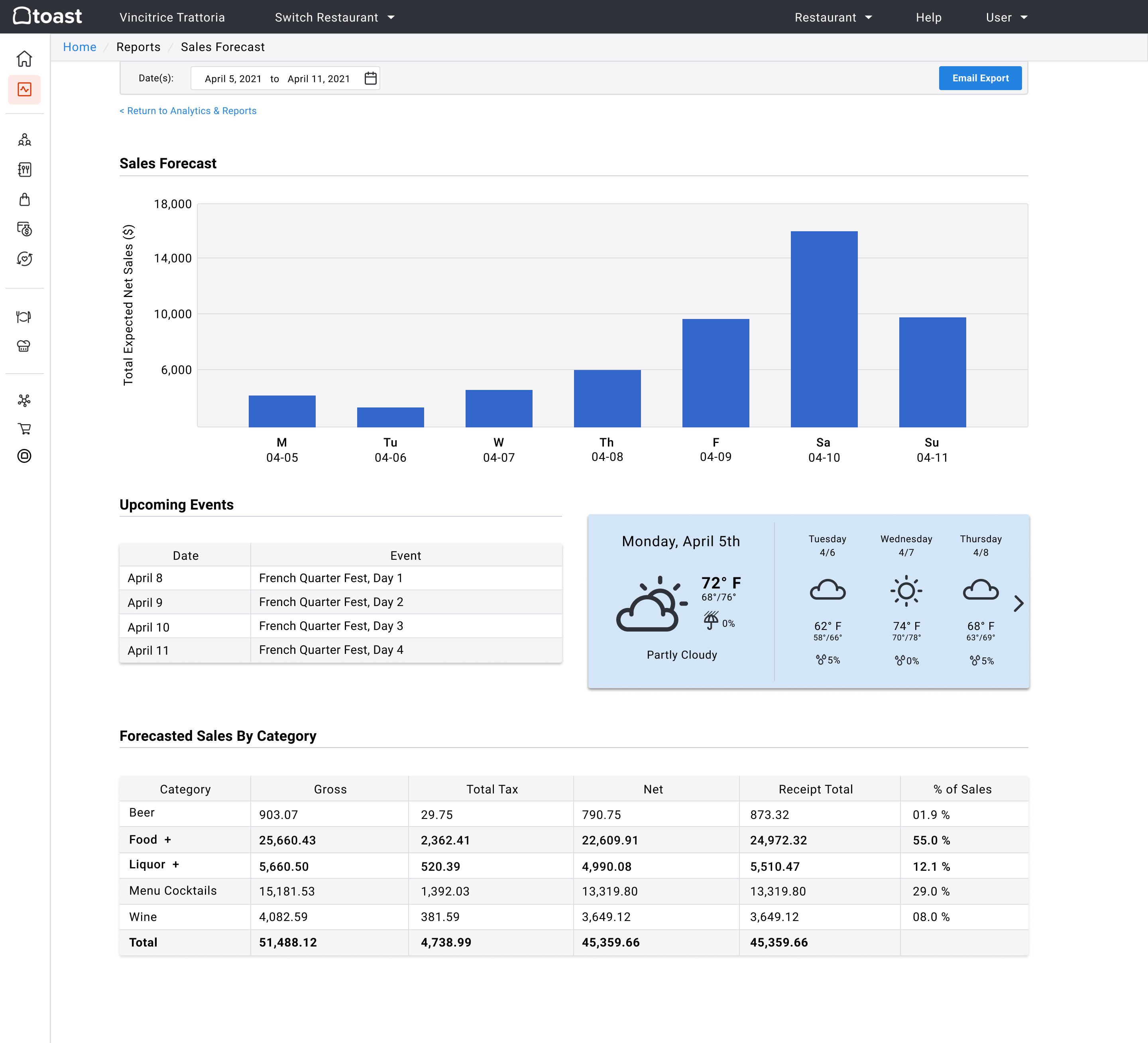
SALES FORECAST PAGE
Sourcing from user interviews, we know restaurant managers use the prior year's sales data to inform decisions for the current year. To keep the design uniform, we leveraged Toast's presentation of historical sales data, shown in a chart format.
Early in the process, we decided to provide a chart at the top of the page, followed by a table containing any events that are occuring within the selected time frame. To address the drastic differences in consumption patterns based on the type of event or convention, another table was added to predict the breakdown of food versus different categories of alcoholic beverages. This adds another layer of predictability helpful when planning food/drink orders.
WHAT ABOUT WEATHER?
In interviews, we heard a lot about weather being a major concern/factor restaurant managers consider when planning. However, after discussing with our project mentors, we realized including weather in the predictive model could result in inaccurate results. However, to provide restuarant managers this visibility, we decided to include a weather widget within the sales forecast page so upcoming weather could be considered during planning.
LIMITATIONS
When working with the date picker, the team realized that we may need to impose a limit on how far forward the user could query predictive sales and event data.
The plan was for this predictive model to connect through APIs with local event boards and convention schedules to automatically source event data. But how far in advance are events posted to these boards? Again, with the limited amount of time we had to deliver a MVP, we decided to limit the date range to 28 days past the current date.
Note that the date picker has disabled selection of dates further than 28 days out from April 1st, showing them as greyed out.
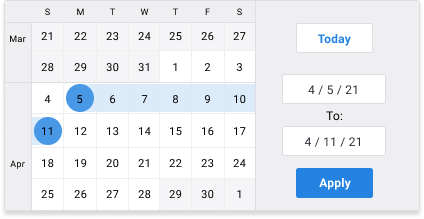
FINAL PRODUCT
The team was able to gain access to 7 years of actual historic sales data from a New Orleans based restaurant. To emulate the data that would be collected through an API connection to local event boards, team members used names of recurring events and searched for exact dates those events occured, going back 7 years.
THE PREDICTIVE MODEL
Using the historic sales data plus the local event data (event name and date), the data science team was able to create and train a model to successfully predict upcoming sales up to 28 days ahead.

DEPLOYED VERSION
The software engineering team used the figma models developed by the UX team and hosted a version of the application, check out the live version here.
*Note, some of the data represented in the live version is static, and the data picker functionality does not dynamically change the inputs to the forecast chart. However, the estimated sales displayed in the chart is based on actual data and was generated using the predictive model.
CONCLUSION
So, how does this help small business restaurants recover from the pandemic?
TIME SAVINGS & OPERATIONS OPTIMIZATION
There is a huge amount of time savings gained by providing upcoming events, weather, and expected impact on sales and food or beverage breakdown all in one dashboard. Managers can feel confident they are prepared and have optimized staffing and supply orders. Guests are happy, staff morale is high, and management has peace of mind.
INTEGRATION INTO FAMILIAR SYSTEM
The toast P.O.S. system is widely used by small business restaurants. Adding a sales forecasting feature to a system that is already being used makes adoption easy and seamless. Managers will have a familiar experience, rather than have to learn a new one.
WE WON FIRST PLACE!
In case I didn't mention this already, our entry for the small business hackathon won first place in our category, restaurants & retail! In addition, we recieved the highest score of all submissions to the hackathon. Naturally, I thought it was a fantastic experience.
Having participated in one hackathon prior, my main focus was to recognize the limited time we had and limit scope creep as much as possible. Our goal was to ideate, design, and deploy a working prototype that would help restaurant managers be more prepared by being able to adequately staff and stock food/beverage supplies.


